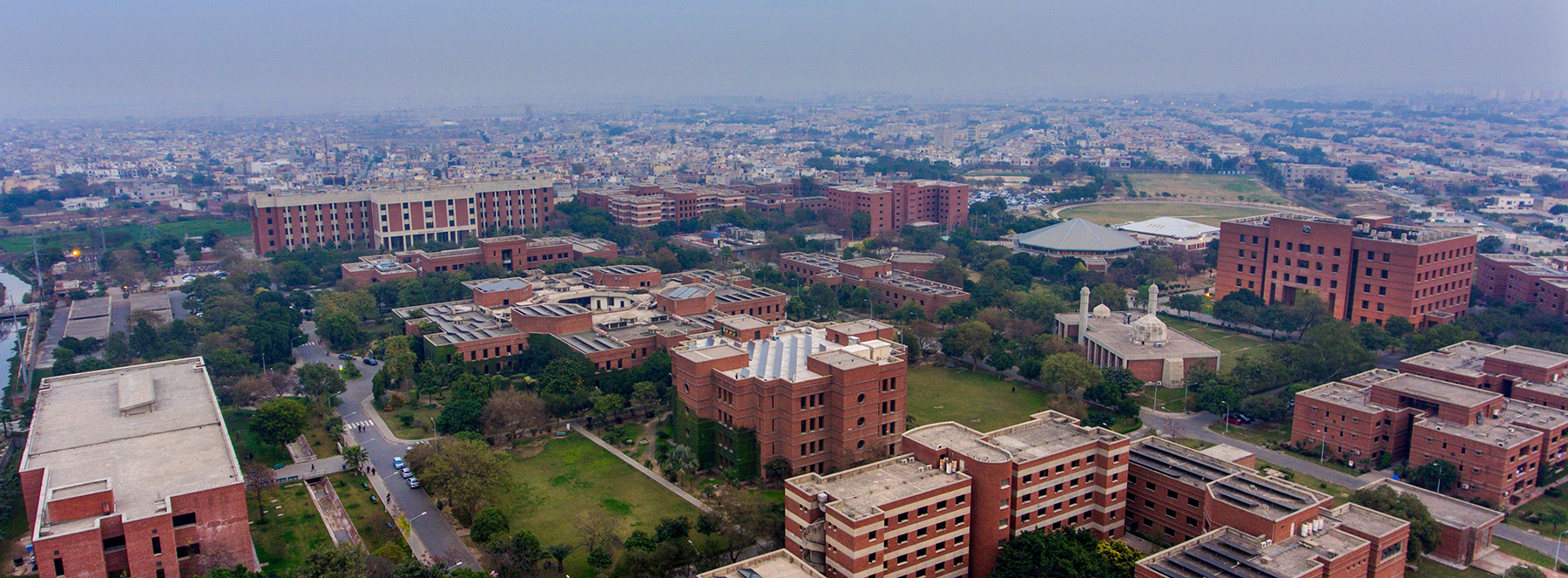
Conserving Habitats and Species
Q. Hammad, you joined WWF Pakistan in 1997 as Senior Environmental Officer and since 2014 you are the Director General and CEO. Tell us a little bit about your journey.
I was awarded a Britannia Chevening scholarship for an M. Sc. in Water and Environmental Management from the University of Birmingham, UK. I came back to Pakistan in 1997, and started my job hunt. There was a vacancy open at WWF and after some tight competition; I was selected as the Senior Environmental Officer; since then I have never looked back. As I progressed in WWF, I recognised water as a key issue for Pakistan and gradually developed WWF-Pakistan’s Freshwater programme. This programme, which today is one of the largest programme of WWF, involves conservation of freshwater species, agriculture, and working with different businesses and industries to minimise their water footprint. In 2014, the Board was looking for a new CEO to lead the organisation, and I was selected for the position. I would like to specially mention that Mr. Syed Babar Ali - the founder of WWF Pakistan- is my mentor and a pillar of guidance. When I was leaving Pakistan to work in the Netherlands, I made a commitment with Babar sahib that whenever he needed me I would come back. Living in the Netherlands, I was closer to my sons, who are based in the UK, and I visited them regularly and was more involved in their lives. Had I stayed, I would also have been eligible to become a Dutch national, but my commitment was more important than any nationality, especially since I am a patriotic Pakistani and the mission of WWF-Pakistan is so close to my heart. So, when the Board offered me this position, I felt morally obligated to accept it. In 2014, I came back to Pakistan as the Director General and Chief Executive Officer of WWF-Pakistan.
Q. Pakistan ranks among the top 10 most vulnerable countries in terms of climate change. You said in a recent interview that for Pakistan, climate change is water change. Can you please elaborate on that statement?
Climate change is one of the most serious threats our planet is facing. For Pakistan, the situation is even worse, as we are one of the top ten countries affected by climate change, according to German Watch - Climate Change Performance Index. Pakistan has witnessed a diverse range of challenges related to water in recent times, from flash floods to long spells of drought and then water scarcity - be it the shrinking supply such as glaciers melting or the rising demand for water from people, food, and industries. The crux of the issue is that demand for water is rising, while its per capita availability is decreasing, and the available supply is being polluted. All of these are linked to climate change.
Q. A sentiment commonly echoed is that for developing countries, economic development needs to be a higher priority than the conservation of the environment and natural resources. What is your view on that?
This is equivalent to ignoring one sector and increasing the burden on the other. What is the most common reason for hospital admissions? It is primarily water-borne diseases. What are the reasons for rising respiratory tract diseases? It is primarily because of poor air and water quality. You might focus on development, but what is the impact of compromising the environment? People are getting sick; many of them are poor and their lifestyles cannot afford even basic protective measures like getting bottled water or remaining indoors. This results in the loss of productivity and increased burden on the healthcare system. As per the Infection Prevention and Control Foundation of Pakistan, we are at the top for Hepatitis and Typhoid infections. We have been ignoring these sectors, but who is calculating the monetary value of human health?
What about the ecosystems that provide a multitude of services to mankind and the environment, such as wetlands? We do not attach monetary values to the degradation of these natural assets. The argument of economy over environment has been proven wrong everywhere and needs to be proven wrong here in Pakistan as well, because there is no sustainable development without considering these two sectors together.
Q. What are the actions that WWF recommends that the government of Pakistan must take to ensure that the Sustainable Development Goals agreed upon in September 2015 are met by 2030?
The COVID-19 pandemic has highlighted how essential it is to establish a new relationship between people and nature, as climate change and biodiversity loss threatens the progress we have made on SDGs globally. WWF-Pakistan’s work, spread across 6 practices, aligns with almost all of the Sustainable Development Goals
- Through our land and water management projects, we contribute to SDG 15-Life on Land (for terrestrial and freshwater ecosystems).
- Our coastal and oceans work focusing on the Arabian sea and setting out innovation marine conservation initiatives has met several of the targets under SDG 14-Life Below Water.
- Through our projects tackling plastics pollution and solid waste management, we contribute to SDG 12-Responsible Consumption and Production.
- Several of our projects under the Climate and Energy practice, involve strengthening the resilience of ecosystems to climate change to achieve SDG 13-Climate Action.
- Our energy focused work, like installing solar powered irrigation solutions or helping find alternatives to fuel wood consumption, helps contribute to SDG 7-Affordable and Clean Energy.
- One of our largest programmes is the Sustainable Agriculture Program spread across Punjab, Sindh and Balochistan which has direct impacts on SDG 11-Sustainable Cities and Communities, and our projects reducing food loss and waste contribute to SDG 12.
- Our Freshwater practice has not only worked towards the protection of our rivers but has also tried to improve community access to clean drinking water, thereby contributing to SDG 4-Clean Water and Sanitation.
- Through our sustainable infrastructure and water stewardship programmes, we are contributing towards SDG 14-Industry, Innovation and Infrastructure.
- Through the motto of ‘Leave No One Behind’ and our principle of inclusive conservation, all of our work involves community building initiatives. We have successfully initiated and implemented large livelihood programmes under each of our practices, which have helped us contribute towards SDG 1-No Poverty, SDG 2-Zero Hunger, and SDG 3-Good Health and Wellbeing. Our livelihood programmes, whether in agriculture or conservation, have created opportunities for both men and women, contributing to SDG 5-Gender Equality, SDG- 8 Decent Work and Economic Growth, and SDG 10-Reduced Inequalities
- Our nationwide environmental education initiatives have helped us contribute to SDG 4-Quality Education.
- None of this work would have been possible if we did not form meaningful partnerships with other organisations, and align our work with the government and other stakeholders. WWF-Pakistan is part of many consortiums coming together to implement environmental programmes nationally, regionally and internationally. WWF-Pakistan supports the Government of Pakistan in integrating SDGs in its policies and programmes. Through this collaborative approach, we contribute towards SDG 17-Partnerships for the Goals.
Q. Can you tell us something about the impactful work that WWF has been doing in Pakistan?
WWF is the largest environmental conservation organisation, both globally and in Pakistan. If you look at our broader set of priorities as a nature conservation organisation, with respect to our global goals, we work on forests, marine issues, wildlife conservation, climate and energy, sustainable food and markets, and water, etc. There are also cross-cutting areas, like finance and governance. For example, WWF-Pakistan in collaboration with Oxfam in Pakistan has initiated a mangrove afforestation project in the Indus Delta. Through this project, over 70,000 mangrove saplings have been planted along the Sindh coast. Both organisations integrate climate change adaptation, mitigation, and resilience into their initiatives related to biodiversity conservation along with natural resources management in Pakistan. Additionally, the Climate SHEROs campaign is helping reduce the adverse impacts of climate change, especially on women whose livelihoods, food and residential security are at risk due to mangrove deforestation. The readers will be happy to know that WWF-Pakistan in collaboration with LUMS has developed the ‘Forest Health Calculator’ mobile application which will be deployed in larger forested areas (Chir Pine Zone and Moist Temperate). This application is planned for third-party audits of the 10 Billion Tree Afforestation Project. This project is a huge win for WWF Pakistan.
Q. What changes do you foresee in your work as a result of the global pandemic? Any unforeseen challenges?
Of course, a pandemic of this nature and magnitude has impacted the entire world; the economy, the entire landscape of this world has been changed. WWF as an organisation, and its nature of work with multiple partners around the world, depends on funding from partners. As much as WWF and its partners tried, the economic situation at hand forced us to slow down most of our ongoing projects. Our team kept going even under the worst conditions; while the majority of my team members managed their work from home, some still went into the field to ensure our progress to the extent possible with the financial crux at hand. The situation was unforeseen, not only for us as a team, but for the entire world, and we are still trying to get back into our pre-pandemic pace. My team has been my source of support throughout this time, and we will successfully come out of this.
Q. A crisis like this places extraordinary demands on the leadership of an organisation. What do you think are the key things that leaders should keep in mind when responding to such a crisis?
A leader’s priority is to lead at all times; be it a pandemic or a crisis. Leading a hardworking team, I have to think for all of them. I have been trusted by the board to lead these capable people. As a leader, I have to make sure I do not lose patience and control. I remain calm, I think for my team and I give them options to ease their lives as well as keep the work going. I try to think for the greater good, and act on behalf of the entire team. Leaders need to make sure none of their team members falter, they don’t lose hope, don’t get demotivated and disheartened, they keep working to the best of their ability, and that they get rewarded in every way possible. The decisions of leaders in such times leave a lifelong impact. Those decisions may be hard at times, but they still need to be made and implemented. So, thinking on behalf of a team and acting accordingly is crucial in these times.
Q. Finally, what advice would you give our students considering a career in areas related to the environment, conservation, sustainability, and climate change?
This field has changed my perspective on so many things. My advice will be to take it up with passion. Know that it is the right thing for you; this line of work has immense satisfaction but it takes patience to be here. It is not easy but if you have the passion, there is nothing better than to make your habitat a better place to live in every single day.


